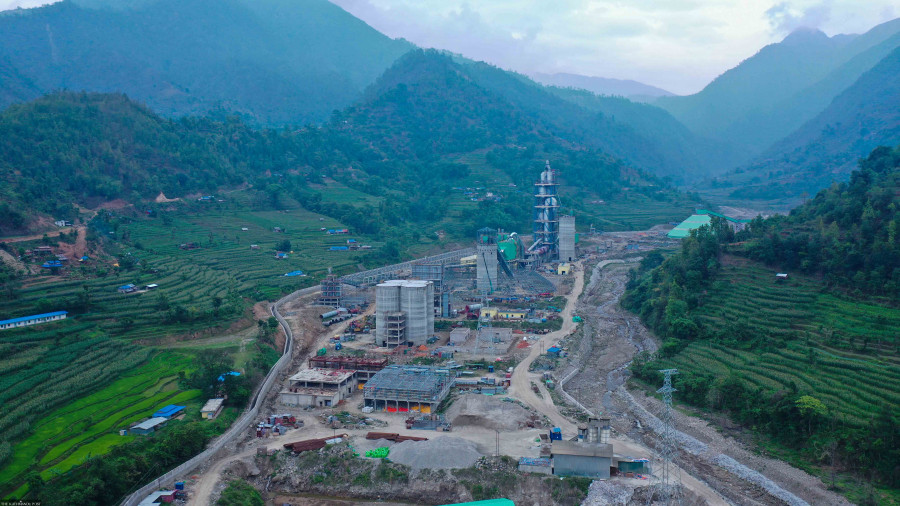
As per the Department of Industry, China topped the list of foreign investment pledges in Nepal in the first half of the fiscal year, with investment commitments amounting to Rs23.37 billion in 107 projects. POST FILE PHOTO
Foreign direct investment (FDI) commitments showed a 30 percent year-on-year jump in the first six months of the current fiscal year, the Department of Industry said.
Department officials touted the rise in investment pledges even while the third wave of the pandemic was raging in Nepal to improved policies.
During the period mid-July 2021 to mid-January 2022, the country received promises from potential investors to spend Rs30.56 billion on 129 projects, according to the department.
In the same period of the last fiscal year 2020-21, investment commitments amounted to Rs23.47 billion for 123 projects.
Ramchandra Tiwari, director general of the Department of Industry, said that investment commitments improved substantially because the Covid-19 pandemic was subsiding after the second wave.
“We are in the midst of the third wave, if the virus caseload recedes, it might not impact the commitments much.”
FDI pledges during the whole of fiscal 2019-20 stood at Rs37.80 billion before dropping by 15.29 percent to Rs32.02 billion in fiscal 2020-21 as the coronavirus pandemic took hold.
According to Tiwari, non-resident Nepalis have been asking for a separate investment policy for them. “We are looking at their suggestions too.”
Tiwari said that there were some long-standing issues related to the foreign investment threshold which the government planned to review.
Under the current policy, investors need to bring in at least Rs50 million for the capital to be considered FDI. “Investors say the limit is quite high,” said Tiwari.
In a bid to facilitate FDI, Nepal Rastra Bank rolled out the Foreign Investment and Loan Management Bylaws 2021 which freed foreign investors from having to take the central bank’s prior authorisation to transfer foreign currency into Nepal after obtaining approval from the foreign investment sanctioning body.
Dinesh Shrestha, vice-president of the Federation of Nepalese Chambers of Commerce and Industry, said that foreign investors make investment decisions only after studying the investment environment and profit and loss scenarios.
According to Shrestha, foreign investors who have put money in various projects in the country expressed many complaints during a recent interaction.
“Government policy needs to be clear on to what extent it welcomes FDI, and the government needs to understand that foreign investors are here to invest money and repatriate their profits,” he said.
“Foreign investors invest money where they see an opportunity, so it should be easy for them to come and easy to exit. Unless foreign investors find it easy to come and go, they will not be interested in investing,” Shrestha said.
“When foreign investors find it difficult to repatriate their earnings, other investors will naturally get discouraged,” he said.
Shrestha said that frequent changes in government and accordingly policies have been hindering investment. Concerns were also raised when the government decided to allow foreign investment in agriculture last year.
As per the Department of Industry, China topped the list of foreign investment pledges in Nepal in the first half of the fiscal year, with investment commitments amounting to Rs23.37 billion in 107 projects.
India promised to invest Rs290 million in four projects.
The tourism sector received investment pledges amounting to Rs9.83 billion in 57 projects. Foreign investment in the tourism sector has been increasing in the past few years.
Around 31 FDI pledges have come for medium scale and small scale industries. The manufacturing sector received foreign investment commitments worth Rs3.41 billion for 21 projects.
FDI commitments in the service sector totalled Rs16.21 billion for 40 projects. Most of the planned businesses are related to software development, international cargo handling and construction services.
A central bank report published last year showed that FDI approvals don’t match actual FDI inflows.
FDI approval may indicate an intended investment, but the approved investment may not actually take place. There may also be significant time lags between approval and actual investment, according to the report.













